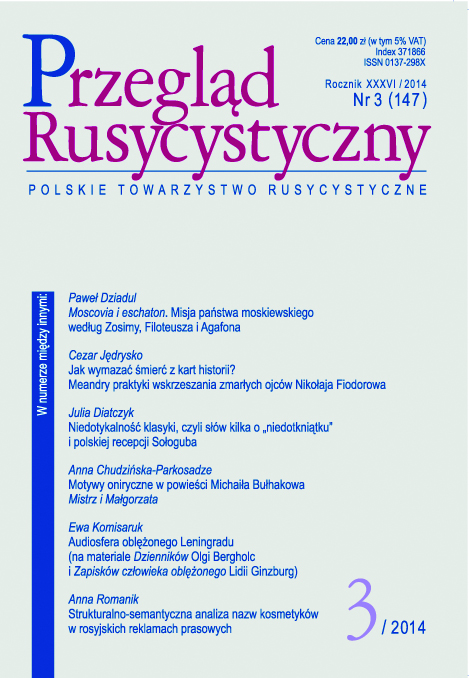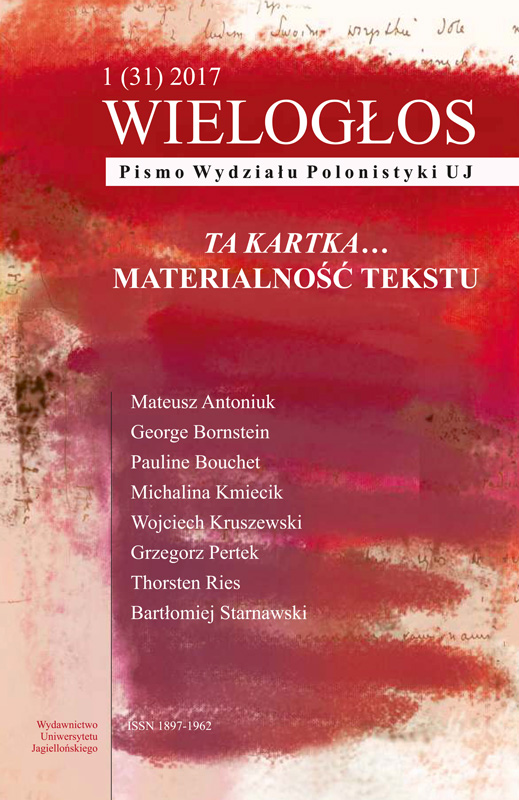
„To jest wielki człowiek! A jaki skromny!” Uczłowieczony wizerunek Lenina w opowiadaniach
Recently, representatives of different disciplines, especially cultural anthropologists and philologists, take an active interest in the cult of Lenin. However, most of the available studies usually concern the socio-political conditions of this phenomenon. The authors devote little attention to the literary incarnation of Lenin, which is definitely worth taking a separate discussion. Therefore, the primary aim of this paper is to analyze the stories about Lenin from the philological perspective. In particular, there will be discussed the features, which have been blessed with their hero, as used literary, linguistic and stylistic conventions, and the functions of these works.
More...
